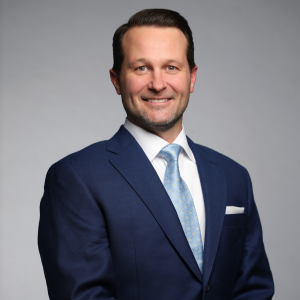Promoting leadership
We have long had a fascination with leaders. We have studied individual leaders, and mused on what makes a good leader and the interactions of leaders and followers. We may never become leaders in the capacity of leading a nation to war or combating a recession. Nevertheless, we can all exhibit leadership-a characteristic that can be taught, learned, and constantly improved.
Leadership development
Professional organizations in long-term care recognize the importance of leadership development. Conferences, convocations, and meetings routinely offer resources to help promote leadership skills. This is backed by research studies showing leadership from nursing home top managers is instrumental in the effective functioning of their institutions. The most effective leaders in nursing homes have lower staff turnover, higher job satisfaction, and better quality of care.
However, much of our thinking on leadership has been individualistic. That is, leadership is often seen as an individual-level skill. Yet, this is not necessarily so. One characteristic of effective leadership is further developing leadership in others in the organization. In nursing homes, culture change and patient safety have made it imperative to involve staff members in leadership initiatives and make leadership a much-needed organizational-level skill. For both effective culture change and patient safety movements, staff need to make care decisions. In both culture change and patient safety staff need to make these decisions knowing that they have the support of top management, and knowing that they are empowered to make these decisions.
Even without these movements, a quality of effective employer/employee relationships is support from top management. Thus, to paraphrase Theodore Roosevelt, the best executive is the one who has sense enough to pick good staff to do what he or she wants done, and the self-restraint to keep from meddling with them while they do it.
Fostering leadership
Several areas in which to foster staff leadership include promoting: character (trust and honesty), enthusiasm, passion, confidence, commitment to excellence, and to celebrate success. These are needed intrapersonal skills.
An organization must also tap into the interpersonal skills of its staff members to foster leadership development. Members must be capable of creating and maintaining skills including empathy, service orientation, team-building strategies, ability to change, and conflict management. Nursing home staff are often already strong in some of these areas (e.g., service orientation). Top management could even learn to develop some of these interpersonal skills from staff.
Tap into the interpersonal skills of staff members to foster leadership development.
This is not a comprehensive list of competencies by any means. To some, it may appear like a list of platitudes. As such, getting started can often be the biggest stumbling block. Believing in leadership and promoting leadership often need a jolt. Our suggestion to provide the motivation to implement Total Leadership Commitment (TLC) in nursing homes is very simple. Think of whom you most admire in the industry. What are his/her characteristics you admire most? These are likely leadership skills that you can also develop. Ask staff to perform the same exercise; and some may also be motivated to develop leadership skills.
Resources
This begs the question of what to do once you start this journey. Resources exist to further develop staff in each of the areas noted above, most of which is backed by evidence of effectiveness (including a return on investment). The Web has a multitude of leadership development sites (a list is available from the authors). Resources also exist in this area that provide a “score,” “view,” or an “index” that can be used as the starting point for the organization. That is, similar to quality improvement, using information from these assessments the low-hanging fruit can be addressed first. Well-published steps to leadership development include: learn about leadership, view what leadership styles seem to work for others in the industry, understand your current leadership approach, and track your progress/success. That is, the outcome of any leadership development program can be measured by improved organizational performance.
This is dissimilar from managerial development. Managerial development focuses on handling routine daily work. Leadership development focuses on developing skills to handle unpredictable daily work. Fostering this change can be a challenge; however, you may find in this process that in the words of Coco Chanel, “It’s amazing how many cares disappear when you decide not to be something, but to be someone.”
Nicholas G. Castle, PhD, is a Professor with the University of Pittsburgh in the Department of Health Policy and Management. Dr. Castle serves on five editorial boards, including
The Gerontologist, and is a Fellow of the Gerontological Society of America. He is currently examining staff turnover in nursing homes, the federal report card Nursing Home Compare, and nursing home administrator job satisfaction. He can be reached at
Jamie C. Ferguson-Rome, MHA, is a Project Director with the University of Pittsburgh in the Department of Health Policy and Management. Ms. Ferguson can be reached at
ferguson.jamiec@gmail.com. Long-Term Living 2010 September;59(9):42-43
I Advance Senior Care is the industry-leading source for practical, in-depth, business-building, and resident care information for owners, executives, administrators, and directors of nursing at assisted living communities, skilled nursing facilities, post-acute facilities, and continuing care retirement communities. The I Advance Senior Care editorial team and industry experts provide market analysis, strategic direction, policy commentary, clinical best-practices, business management, and technology breakthroughs.
I Advance Senior Care is part of the Institute for the Advancement of Senior Care and published by Plain-English Health Care.
Related Articles
Topics: Articles , Facility management , Leadership











